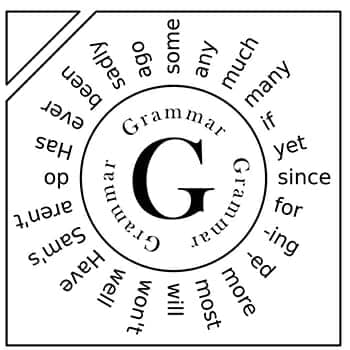 I’ve received tons of questions by email about how to memorize grammar.
I’ve received tons of questions by email about how to memorize grammar.
It’s a good question and an important question … but perhaps not the essential question.
That said…
Most Magnetic Memory Method books and memory courses have at least something to say about memorizing grammar rules.
And Memory Palaces can be used very effectively for doing so, provided you bring some personalized experimentation.
What kind of experimentation?
The kind that is specifically engineered to the target language and your personal depth of fidelity with respect to the core Magnetic Memory Method principles.
But in my view, the ultimate key to cracking the grammar code is …
(wait for it …)
… the memorization of vocabulary.
Ta da.
Abracadabra.
Bling bling.
Why?
Because when you can memorize individual words, you can memorize phrases. When you can memorize phrases, you can observe how grammar works within your mind.
Listen, there’s no doubt in my mind that grammar is a key component of bilingualism. But I also feel after over a decade of teaching memory techniques for language learning that it’s a barrier we (or our language instructors and language-learning books) erect before us.
One of the main reasons that grammar can be a barrier rather than a passage is that one simply cannot practice grammar without vocabulary.
It’s odd too.
You can describe the grammar of a target language readily enough in your mother tongue once you’ve understood the formulas (and that’s pretty neat), but to use the equations without a pile of words from the target-language populating your mind is like trying to pedal a bicycle without a chain.
You get nowhere fast, and you might just tip over completely and find yourself on the ground with a bruised hipbone.
Grammar can be become such a huge barrier, than many people never pick that bike again, let alone fit it with a chain of vocabulary and apply the oil of practice.
Or you can follow-these grammar memorization principles:
Scrapes and Bruises …
But on the matter of tipping over and sustaining a few scrapes and bruise, substantial vocabulary acquisition is also important for making mistakes. We know that most advancements in life come through “failure,” but in order to fail, you’ve got to be doing something that makes failure at least an option, if not a certainty.
Of course, one then needs to couple vocabulary and grammar with context, be it through travel, reading, listening and above all discussing.
Ah, love …
I’m blessed to have experience a relationship with a girlfriend who barely spoke English.
She was my hardwood floor in the Memory Dojo where I took my knocks and practiced the presence and awareness of striving after spoken fluency in an atmosphere of comfort, patience and love.
The point is that I had someone close to me before whom I could “cook” the words I’d memorized in the “broth” of grammar rules.
These really took only a few weeks to learn well enough that I could coast upon them before starting to soar.
And she left it up to me to ask whether or not I’d gotten this or that grammatical construction correctly. I could tell by the shape of her eyebrows when a word I’d selected was either sour or plucked from the wrong tree.
Fluency, in any language, including one’s mother tongue, most certainly comes from an endless curiosity about how these shifting words and word fragments can be pieced and re-pieced together.
Sunil Khatri and I (he’s an MMM Student) talk about this in From Mnemonics Beginner To Memory Palace Mastery. Here’s how he did it:
Memorize en Masse
So please, memorize words and memorize them en masse so that you actually have some toys to play with in the sandbox of grammar. It’s all about of practicing memory techniques for tough subjects like grammar.
Related Posts
- Best Languages to Learn for Business: Everything You Need to Know
What are the top business languages that will help you in your climb to the…
- The Memory Code: Prehistoric Memory Techniques You Can Use Now
Lynne Kelly, author of The Memory Code, shares her personal experiences learning ancient memory techniques…
- The Memory Code: Prehistoric Memory Techniques You Can Use Now
Lynne Kelly, author of The Memory Code, shares her personal experiences learning ancient memory techniques…




